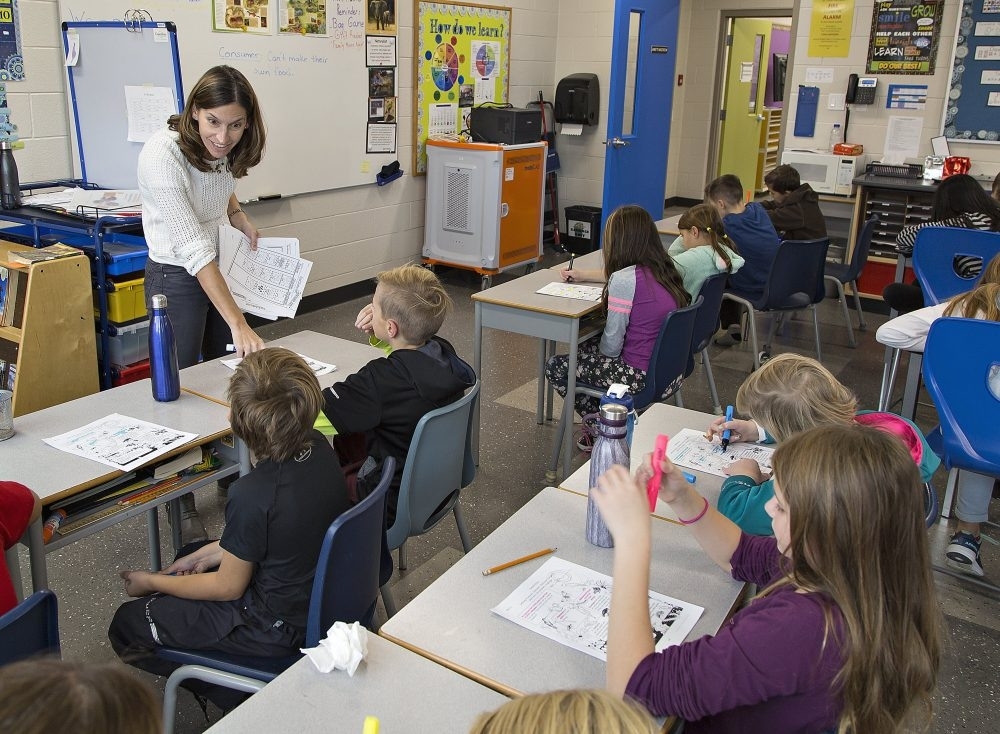Education
Parents Demand a Voice in Winnipeg’s Curriculum Changes

The back-to-school season has transformed from a time of excitement into a period of frustration for many parents in Winnipeg. As families prepare for the new academic year, they express growing concerns regarding their lack of input in the curriculum being taught in public schools. Recent changes in educational content have sparked significant debate, particularly around topics such as Indigenous history, gender identity, and sexual education. Many parents feel sidelined, with decisions made without their consultation.
Parents Feel Excluded from Decision-Making
A survey conducted by the Fraser Institute in 2023 revealed that 70 percent of Canadian parents desire more involvement in their children’s education. In stark contrast, only 30 percent reported feeling included in discussions about curriculum changes. This disconnect highlights a significant issue within the public education system, which is intended to serve community interests but has increasingly left parents feeling like outsiders.
One of the most contentious changes involves the portrayal of Canadian history in educational materials. Recent curriculum revisions have minimized traditional narratives regarding Canada’s founding and the contributions of historical figures. Instead, the focus has shifted toward addressing past injustices, such as residential schools and systemic discrimination. While these are indeed crucial topics, many parents worry that the current approach presents a skewed perspective of the nation’s history. They argue that education should encompass context and critical thinking rather than adhere strictly to one ideological viewpoint.
Impact on Public School Enrollment
The exclusion of parents from the educational discourse has tangible consequences. Between 2018 and 2023, enrollment in private schools in Manitoba increased by 12 percent, while homeschooling surged by nearly 20 percent. In Winnipeg, numerous families have opted to withdraw their children from public schools, citing the absence of consultation and what they perceive as ideologically driven changes in the curriculum.
This situation is not about political affiliations; it centers on the principles of trust, transparency, and parental rights. When families feel their voices are ignored, the overall quality of public education diminishes. Historically, curriculum updates were conducted through town hall meetings and public consultations, allowing parents to engage directly in discussions. This collaborative model fostered accountability and community involvement.
Today, many decisions occur behind closed doors, leaving parents frustrated and students caught in the crossfire. The classroom environment has grown increasingly tense as educators navigate politically charged topics without sufficient support. Parental involvement should not equate to controlling classroom content but rather to fostering a partnership that enhances educational outcomes.
Many states in the United States successfully implement parental review panels, demonstrating that family engagement and academic rigor can coexist. These initiatives serve as a model for how schools can involve parents more effectively in the educational process.
The stakes for public education are high. Education should be a collective effort, and when parents feel excluded, trust erodes, resulting in declining enrollment and fragmented communities. Public schools in Winnipeg face the challenge of balancing transparency, diversity, and academic integrity, but they cannot achieve this alone. It is imperative for parents to be included in conversations rather than merely informed after the fact.
As students return to school this September, parents across Manitoba must advocate for their inclusion in educational discussions. The narrative surrounding history, values, and education is evolving, and public schools can only thrive if families are actively involved, students are adequately supported, and decisions are made transparently. While curriculum debates are unavoidable, exclusion should not be an option. The future of public education relies on collaboration and open dialogue.
Heather Klein is the Editor of The Graphic Leader. Readers are encouraged to share their thoughts on the educational landscape in Winnipeg or beyond by contacting the editorial team.
-

 Science3 months ago
Science3 months agoToyoake City Proposes Daily Two-Hour Smartphone Use Limit
-

 Top Stories3 months ago
Top Stories3 months agoPedestrian Fatally Injured in Esquimalt Collision on August 14
-

 Health3 months ago
Health3 months agoB.C. Review Reveals Urgent Need for Rare-Disease Drug Reforms
-

 Technology3 months ago
Technology3 months agoDark Adventure Game “Bye Sweet Carole” Set for October Release
-

 World3 months ago
World3 months agoJimmy Lai’s Defense Challenges Charges Under National Security Law
-

 Lifestyle3 months ago
Lifestyle3 months agoVictoria’s Pop-Up Shop Shines Light on B.C.’s Wolf Cull
-

 Technology3 months ago
Technology3 months agoKonami Revives Iconic Metal Gear Solid Delta Ahead of Release
-

 Technology3 months ago
Technology3 months agoApple Expands Self-Service Repair Program to Canada
-

 Technology3 months ago
Technology3 months agoSnapmaker U1 Color 3D Printer Redefines Speed and Sustainability
-

 Technology3 months ago
Technology3 months agoAION Folding Knife: Redefining EDC Design with Premium Materials
-

 Business3 months ago
Business3 months agoGordon Murray Automotive Unveils S1 LM and Le Mans GTR at Monterey
-

 Technology3 months ago
Technology3 months agoSolve Today’s Wordle Challenge: Hints and Answer for August 19









